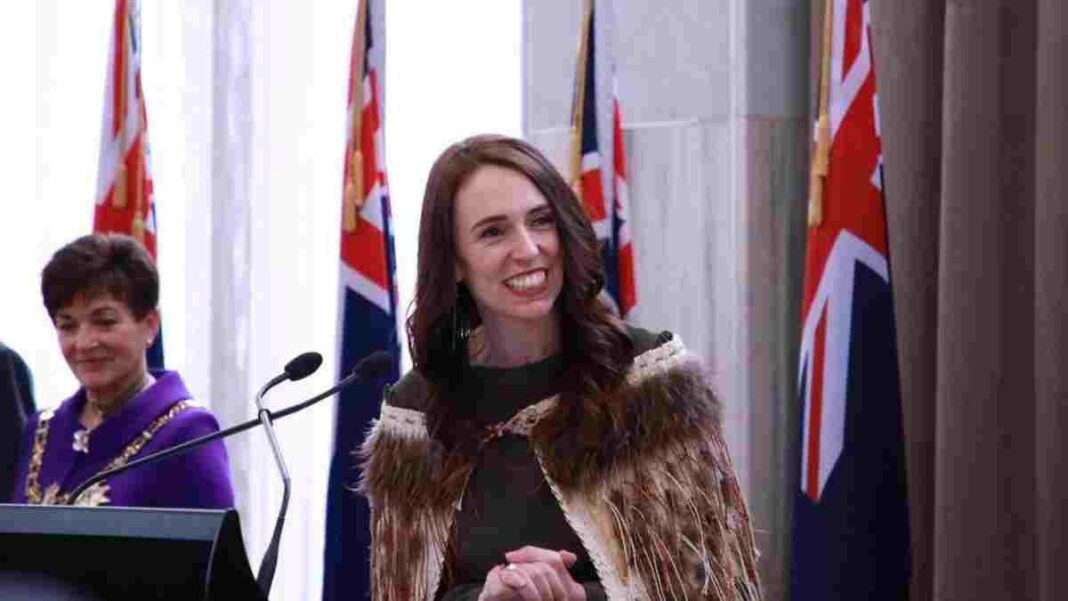NEW ZEALAND: Jacinda Ardern, New Zealand’s prime minister, has resigned, saying she has “no more in the tank” to continue leading.
Holding back tears, Ardern, 42, said that it has been a “challenging” five and a half years as prime minister and that her term as prime minister will conclude no later than February 7.
“I hope I leave New Zealanders with the belief that you can be kind but strong, empathetic but decisive, optimistic but focused… that you can be your kind of leader, one who knows when it’s time to go,” Ardern told a news conference.
“I am leaving because with such a privileged role comes responsibility—knowing when you are the right person to lead and when you are not. I know what this job takes and that I no longer have enough in the tank to do it justice. It is that simple,” she continued.
“After six years of some big challenges, I am human. Politicians are humans. We give all that we can for as long as possible, and then it’s time. And for me, it’s time,” Adren further added.
On Sunday, members of the ruling New Zealand Labour Party will nominate a new party leader, who will then serve as prime minister until the subsequent general election. A general election will take place on October 14.
Ardern stated that she believed Labour would triumph in the upcoming election.
Grant Robertson, who is the deputy prime minister and finance minister of New Zealand, said in a statement that he would not run to be the next leader of the Labour Party.
Ben Thomas, a political expert, said that Ardern’s statement came as a big surprise because polls still showed that she was the nation’s choice for prime minister, even though her party’s support had dropped significantly from its sky-high levels during the 2020 election.
“There was not a clear successor,” said Thomas.
Ardern said she was leaving the job not because it was hard, but because she thought that someone else could do it better.
She told her daughter Neve that she was eager to be present for her when she started school this year and that she felt it was time for her and Clarke Gayford to get married.
Ardern: The world’s youngest female head of government
In 2017, Ardern became the youngest female prime minister at 37.
Riding a wave of “Jacinda-mania,” people’s excitement about her, she fought hard for women’s rights, ending child poverty, and making the country’s economy more equal.
Eight months after taking office as premier, she became the second elected leader, after Pakistan’s Benazir Bhutto, to give birth while in office. Many people, like Finland’s Prime Minister Sanna Marin, saw Ardern as part of a wave of progressive women in power.
The way she handled the 2019 shootings at two mosques in Christchurch, which killed 51 people and hurt 40 others, showed how empathic a leader she is.
“Jacinda Ardern has shown the world how to lead with intellect and strength. She has demonstrated that empathy and insight are powerful leadership qualities,” Australian Prime Minister Anthony Albanese tweeted on Thursday.
Ardern was praised by everyone in politics for how she dealt with the COVID-19 epidemic, which led to some of the toughest international rules and one of the lowest death rates.
But over the past year, her popularity has waned as crime has surged, inflation has soared to levels not seen in over three decades, and the central bank has aggressively raised the cash rate.
Political disagreements in the nation have grown around topics including the government’s redesign of the water infrastructure and the implementation of a programme to reduce agricultural emissions. Ardern and Labour have experienced a decline in support in the polls.
Also Read: New Zealand’s New Voting Age is 16, the Court Rules



